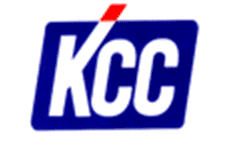Electric Vehicle
Electric Vehicle Charger (EVC) Market to gain immense traction from the proliferating Electric Vehicle Industry
Electric Vehicle Charger (EVC) Market Growth is primarily driven by factors such as government regulations on increasing environmental pollution, rising penetration of electric vehicles, and a surge in government efforts to develop electric vehicle charging infrastructure. However, the limited number of EV charging stations and the lack of standardization in the EV charging infrastructure are expected to hinder the expansion of Electric Vehicle Charger (EVC) Market size. But the introduction of new technologies such as wireless charging for luxury and feature-equipped electric vehicles should create business opportunities in the long run.
Electric vehicle charging infrastructure is a crucial element for mass deployment of electric vehicles. Several government efforts are underway to provide EV charging stations around the world. For example, the Indian Association of Automotive Research (ARAI) plans to deploy more than 200 EV charging stations nationwide. In addition, Tata Power (India) supports the Government of India's “State Electric Vehicle Missionâ€. Tata Power has installed its first electric vehicle charging station in Mumbai (India) for India's growing EV ecosystem, providing customers with access to battery charging on the go. Several such initiatives from both the public and private sectors to boost the adoption of EVs will positively impact the Electric Vehicle Charger (EVC) Market Outlook over the next decade.Â
However,
the lack of standardization in integrating charging port among EV manufacturers
has hindered the Electric Vehicle Charger (EVC) demand among end-users. This is
because the end-users are easily vulnerable to confusion as to whether such an
EV charger available in the market is suitable for their car or not. Also, the
charging network needs to be undisturbed and upgradable. EVs will require more
flexible charging solutions as new technologies such as "fast
charging" are finding a way toward the market.Â
Â
The lack of standardized plugs further complicates the charging infrastructure due to variations in the charging technologies incorporated by different EV manufacturers across the globe. For instance, the US EV giant Tesla led by a decorated CEO like Elon Musk is consistently expanding its network of charging stations, but these are designed specifically for Tesla vehicles only. The automotive industry has standardized 120 volt and 240-volt plugs. These are mainly used at home but the players are yet to set a standard for integrating plugs or ports that can quickly charge the vehicle batteries within 30 minutes.
                    Â
Â
Moreover,
while luxury cars are more expensive than traditional cars, luxury cars are a
mandatory status symbol for wealthy individuals. In 2016, the number of luxury
cars sold was about 28,500. Compared to 2015, luxury car sales in 2016
increased by approximately 15.9%, as per a reputed source. In addition,
improving living standards and increasing disposable income for the population
coupled with a shift toward smoother driving experience provided by the EVs is
anticipated to stimulate the Electric Vehicle Charger (EVC) Market trends in
the coming years. Tesla Motors is one of the leading manufacturers of luxury
electric vehicles for end-users.
Author Name : Report Hive Research

.png)

.png)



















